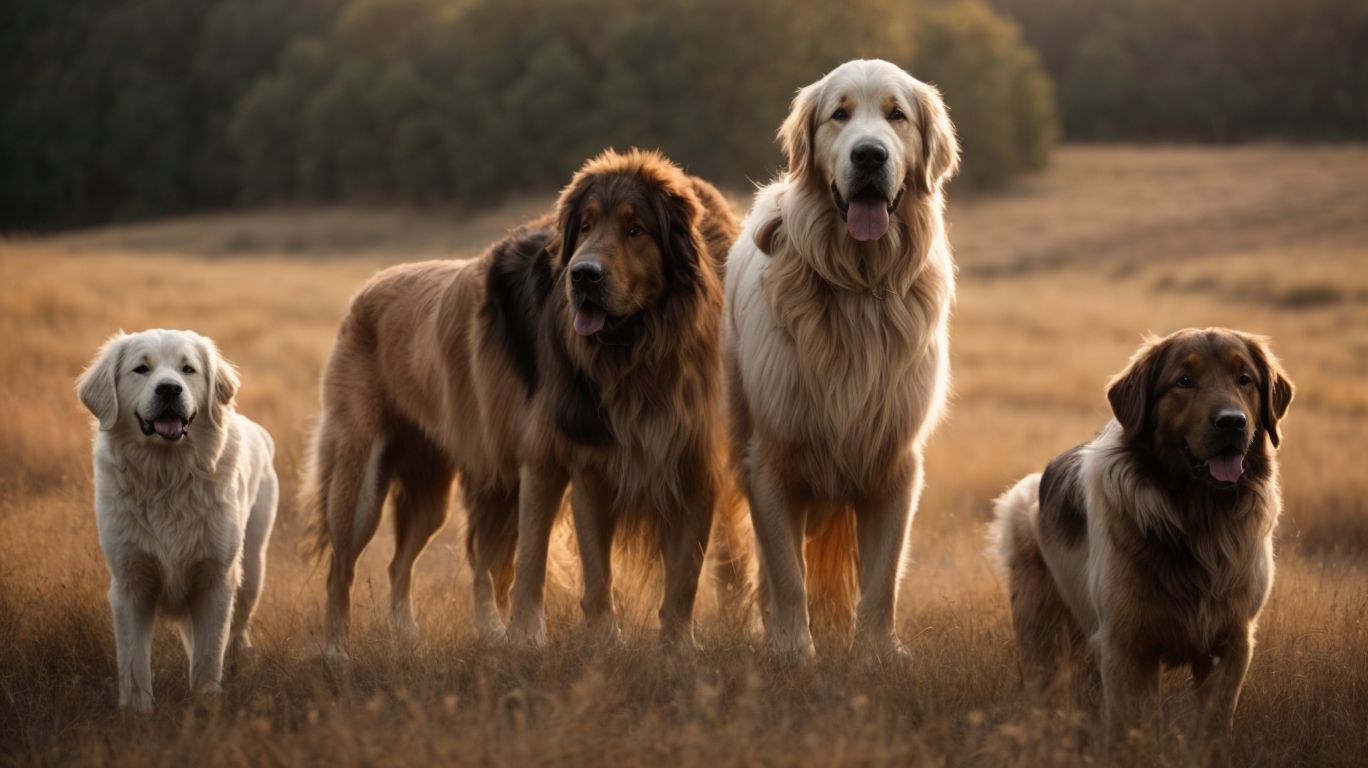
Identifying Brain Tumor Symptoms in Senior Dogs: What You Need to Know
As our furry friends age, they become more susceptible to various health issues, including brain tumors. But how can you tell if your senior dog is experiencing symptoms related to a brain tumor?
In this comprehensive article, we will explore the signs and symptoms of brain tumors in senior dogs, including behavioral changes, physical symptoms, and cognitive issues. We will also discuss the diagnosis and treatment options available, as well as the prognosis for dogs with brain tumors. Whether you’re a dog owner or a veterinarian, this article will provide valuable insights into identifying and managing brain tumor symptoms in senior dogs.
What Are Brain Tumors in Dogs?
Brain tumors in dogs refer to abnormal growths of cells within the brain or the central nervous system of canines.
These tumors can be primary, originating within the brain, or secondary, spreading from another part of the body. They can vary in location and aggressiveness, resulting in a range of symptoms such as seizures, disorientation, and changes in behavior.
When it comes to diagnosing and treating brain tumors in dogs, veterinary care is essential. This often involves advanced imaging techniques and surgical interventions. The prognosis for dogs with brain tumors depends on several factors, including the type and size of the tumor, as well as the overall health of the animal.
What Are the Symptoms of Brain Tumors in Senior Dogs?
The symptoms of brain tumors in senior dogs can manifest in various ways, including neurological signs, behavior changes, head pressing, seizures, vision problems, coordination difficulties, and pain.
Neurological signs, such as changes in behavior or cognition, may include altered levels of consciousness, disorientation, or uncharacteristic aggression.
Behavior changes might involve increased irritability or withdrawn behavior. Head pressing, where a dog compulsively presses its head against solid objects, is another concerning symptom. Seizures, vision problems, coordination difficulties, and unexplained pain can significantly impact a dog’s daily life, leading to reduced mobility, difficulty in performing regular activities, and affecting overall well-being.
Prompt veterinary diagnosis and appropriate treatment are crucial to improve the dog’s quality of life and potentially extend their lifespan.
What Are the Behavioral Changes in Senior Dogs with Brain Tumors?
Behavioral changes in senior dogs with brain tumors can encompass alterations in activity levels, social interactions, and responsiveness to familiar cues.
As dogs age, they may experience changes in their behavior that could indicate a brain tumor. These changes may include decreased energy, disinterest in activities they once enjoyed, and changes in their interaction with family members.
Some dogs may also display signs of confusion or disorientation, while others may show increased irritability or aggression. It’s crucial for owners to closely monitor these behavioral shifts and seek veterinary care at the first sign of concern. Timely intervention can greatly impact the prognosis and quality of life for senior dogs with brain tumors.
What Are the Physical Symptoms of Brain Tumors in Senior Dogs?
The physical symptoms of brain tumors in senior dogs may include signs of pain, changes in gait, and difficulty with basic movements or posture.
Brain tumors in dogs can cause a range of symptoms, which can differ based on the tumor’s location and size. These may include uncoordinated movements, head pressing, and seizures. In senior dogs, vision changes like dilated pupils or blindness may also occur, affecting their comfort and mobility. As a result, their quality of life can decrease significantly. Therefore, it’s essential to diagnose and treat brain tumors early to manage their effects and improve the overall well-being of senior dogs.
What Are the Cognitive Symptoms of Brain Tumors in Senior Dogs?
Cognitive symptoms of brain tumors in senior dogs may involve disorientation, confusion, and lapses in memory or recognition of familiar environments or individuals.
Neurological signs in senior dogs can manifest as changes in behavior, such as withdrawal or subdued behavior. These changes can also affect their ability to respond to commands or interact with family members, resulting in a decline in mental acuity.
As the tumor progresses, senior dogs may struggle with learning new tasks or performing previously mastered activities, ultimately impacting their overall quality of life.
How Are Brain Tumors Diagnosed in Senior Dogs?
Diagnosing brain tumors in senior dogs typically involves comprehensive clinical evaluations, imaging techniques such as MRI or CT scans, and assessment of neurological functions.
Veterinary specialists play a crucial role in accurately interpreting imaging results and observing key symptoms like seizures, disorientation, or changes in behavior. These specialists employ their expertise to recommend appropriate veterinary care, including potential neurosurgical intervention or targeted radiation therapy.
Ongoing monitoring and support are essential to manage the progression of the condition and maintain the dog’s quality of life. Early detection and timely intervention greatly impact the outcome, highlighting the significance of collaboration between pet owners, primary veterinarians, and specialized professionals in the diagnostic and treatment process.
What Are the Treatment Options for Brain Tumors in Senior Dogs?
Treatment options for brain tumors in senior dogs may include surgical intervention, radiation therapy, chemotherapy, and palliative care measures to alleviate symptoms and improve quality of life.
Treatment for brain tumors in dogs often involves a combination of therapies, including those from different medical specialties like veterinary oncology and neurology. This approach allows for personalized care and comprehensive management of the tumor.
The prognosis for dogs with brain tumors can vary depending on factors such as the type and location of the tumor, as well as the individual response to treatment. For senior dogs with brain tumors, the focus of veterinary care is on optimizing their comfort and well-being, while also considering the potential benefits of treatment and maintaining a good quality of life.
What Are the Surgical Options for Brain Tumors in Senior Dogs?
Surgical options for brain tumors in senior dogs may involve tumor resection, debulking procedures, or shunting to alleviate intracranial pressure and enhance neurological function.
Resection, the removal of the tumor, aims to improve the dog’s quality of life by reducing the mass effect and potentially extending the prognosis.
Debulking procedures involve removing a portion of the tumor to relieve symptoms without the goal of complete eradication. Shunting can help manage fluid buildup and reduce intracranial pressure.
Each intervention carries inherent risks, suchem as possible damage to surrounding tissues or organs, but when implemented as part of comprehensive veterinary care, they can significantly contribute to the senior dog’s well-being and comfort.
What Are the Radiation Therapy Options for Brain Tumors in Senior Dogs?
Radiation therapy options for brain tumors in senior dogs encompass targeted radiation, fractionated treatments, and stereotactic radiosurgery to address the neoplastic growth while minimizing damage to healthy brain tissue.
Treating brain tumors in senior dogs requires various approaches, each offering unique benefits and tailored to the dog’s specific condition. Targeted radiation therapy delivers precise radiation to the tumor, while fractionated treatments spread it over multiple sessions to minimize side effects.
Stereotactic radiosurgery uses highly focused beams to target the tumor with minimal impact on surrounding healthy tissue. Veterinary monitoring during and after treatment is crucial to assess the dog’s response and adjust the plan for a better prognosis.
What Are the Chemotherapy Options for Brain Tumors in Senior Dogs?
Chemotherapy options for brain tumors in senior dogs involve the administration of specific medications or protocols to impede tumor growth and mitigate associated symptoms, aiming to enhance the dog’s well-being.
The diagnosis of a brain tumor in a senior dog can be distressing, but it’s essential to explore available treatment options.
Chemotherapy regimens for brain tumors in senior dogs may include drugs like lomustine, prednisone, and vincristine. These medications are tailored to the individual dog’s needs and may vary based on the tumor’s type and stage. It’s crucial to note that chemotherapy can have potential side effects, such as nausea, vomiting, and fatigue. Therefore, personalized care and monitoring of the dog’s well-being are paramount for successful treatment.
What Is the Prognosis for Senior Dogs with Brain Tumors?
The prognosis for senior dogs with brain tumors varies depending on factors such as tumor type, location, size, and the effectiveness of treatment measures, influencing the overall outlook for the dog’s quality of life.
There are several factors that can greatly affect a dog’s symptoms and response to treatment, making veterinary care crucial in managing their condition. Early detection and a personalized treatment plan can greatly improve their prognosis. Regular monitoring, ongoing support, and adjustments to treatment are essential for maintaining their well-being and quality of life. With proper care, senior dogs with brain tumors can often enjoy a good quality of life for a significant amount of time.
How Can Brain Tumor Symptoms in Senior Dogs Be Managed?
Managing brain tumor symptoms in senior dogs involves a combination of medication, supportive care, environmental modifications, and close monitoring to address the dog’s comfort and well-being.
Veterinary care plays a crucial role in the diagnosis and treatment of brain tumors in senior dogs. This may involve imaging tests such as MRIs or CT scans to confirm the presence of a tumor.
Once diagnosed, treatment options may include surgery, radiation therapy, or medication to manage symptoms. Lifestyle adjustments such as providing a comfortable, quiet environment and adapting the dog’s routine to accommodate any changes in behavior or mobility are essential for their overall well-being. It is important to work closely with a veterinarian to develop a comprehensive plan that addresses the unique needs of the senior dog.
What Can You Do to Prevent Brain Tumors in Senior Dogs?
Preventing brain tumors in senior dogs primarily involves routine veterinary check-ups, prompt identification of concerning symptoms, and the implementation of preventive measures to support overall brain health and function.
Regular check-ups and neurological assessments are crucial for detecting early signs of neurological changes in senior dogs. Pet owners should be vigilant in observing their dog for symptoms such as behavior changes, seizures, or coordination difficulties. Early recognition of these warning signs can lead to timely intervention, potentially impacting the prognosis.
Additionally, implementing a balanced diet, providing mental stimulation, and regular exercise can play a vital role in promoting brain health for senior dogs.
When Should You Consult a Veterinarian for Brain Tumor Symptoms in Your Senior Dog?
Consulting a veterinarian for brain tumor symptoms in your senior dog is essential upon observing any concerning neurological signs, behavioral changes, or unexplained discomfort, as early intervention can significantly impact the dog’s well-being.
Timely and accurate diagnosis by a veterinarian is crucial as it allows for swift implementation of treatment, potentially improving the prognosis. Seeking veterinary consultation promptly ensures that any necessary imaging, such as MRIs or CT scans, can be performed to confirm the presence of a brain tumor.
Prompt action facilitates the development of a personalized treatment plan, which may include surgery, radiation therapy, or medication, tailored to the specific needs of your beloved canine companion.




No Comments